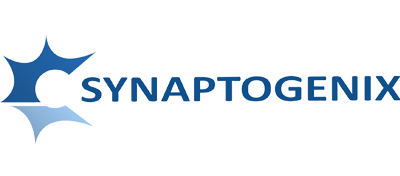Neurotrope, Inc. Files Provisional Patent Application on the Use of Bryostatin for the Treatment of Niemann-Pick Disease Type C
Plantation, FL. – April , 2014 – Neurotrope, Inc. (OTCQB: NTRP) (the “Company”) announced today that it has applied for a provisional patent with the U.S. Patent & Trademark Office to protect its ability to use and commercialize its Bryostatin technology for the treatment of Niemann Pick Disease Type C (NPC). This development program is being conducted in partnership with Dr. Yiannis Ioannou, Professor of Genetics and Genomic Sciences at the Mt. Sinai School of Medicine.
Niemann-Pick disease (NP) refers to a group of inherited metabolic disorders known as lipid storage diseases. Lipids (fatty materials such as waxes, fatty acids, oils, and cholesterol) and proteins are usually broken down into smaller components to provide energy for the body. In NP, harmful quantities of lipids accumulate in the spleen, liver, lungs, bone marrow, and the brain. Symptoms may include lack of muscle coordination, brain degeneration, eye paralysis, learning problems, loss of muscle tone, increased sensitivity to touch, spasticity, feeding and swallowing difficulties, slurred speech, and an enlarged liver and spleen.
There is currently no cure for NP. Children usually die from infection or progressive neurological loss. NPC affects approximately 3,000 people in the US, many of which are children. NPC is considered an Orphan Drug.
Dr. James New, President and CEO of Neurotrope BioScience, said, “The submission of this Provisional Patent Application further supports our belief in the therapeutic potential of Bryostatin and expands our clinical pipeline. We are very pleased to be collaborating with Dr. Ioannou and his colleagues on this project”.
About Dr. Yiannis Ioannou and his Mount Sinai Lab
Dr. Ioannou is a Professor of Genetics and Genomic Sciences at the Icahn School of Medicine at Mount Sinai, New York. He is an internationally recognized molecular geneticist and cell biologist and an expert on the biology, function and diseases of the endosomal/lysosomal system and in particular disorders that affect the central nervous system. Dr. Ioannou has more than 25 years of experience in drug development for rare diseases and he is the co-developer of the FDA-approved enzyme replacement therapy for Fabry’s disease. He is also a co-founder of Dual Therapeutics, a highly innovative R&D company focused on the development of small molecule activators of tumor suppressor proteins with anti-tumor activity.
Currently his group, using the rare neurodegenerative lipidosis Niemann-Pick type C disease as a model, is developing alternative approaches to treat diseases that are not amenable to protein replacement therapy due to central nervous system involvement. Utilizing novel approaches they have developed a new paradigm for addressing these disorders and are currently developing a number of small drug-like compounds with disease-modifying potential.
Dr. Ioannou earned his B.S. in Biology at Baruch College and his PhD in Human & Molecular Genetics at the Mount Sinai School of Medicine.
About Neurotrope
Neurotrope was formed in October 2012 to develop and market two product platforms, including a drug candidate called bryostatin for the treatment of Alzheimer’s Disease, and a minimally-invasive diagnostic test for Alzheimer’s Disease. both of which are in the clinical testing stage. These technologies were initially developed by The Blanchette Rockefeller Neurosciences Institute (“BRNI”) and its affiliates starting in 1999 and have been financed through significant funding from a variety of non-investor sources. The Company currently intends to pursue the development of bryostatin analogues, which have demonstrated preclinical potency in treating ischemic stroke and other neurodegenerative disorders. In addition to bryostatin and the development of its therapeutic product, the Company expects that its diagnostic test for Alzheimer’s Disease will finish the testing phase of its development in 2015, whereupon the Company will evaluate the feasibility of its commercialization.
Please visit www.neurotropebioscience.com for further information.
Forward-Looking Statements
Any statements contained in this press release that do not describe historical facts may constitute forward-looking statements. Forward-looking statements may include, without limitation, statements regarding (i) the plans and objectives of management for future operations, including plans or objectives relating to the development of commercially viable pharmaceuticals, (ii) a projection of income (including income/loss), earnings (including earnings/loss) per share, capital expenditures, dividends, capital structure or other financial items, (iii) the Company’s future financial performance and (iv) the assumptions underlying or relating to any statement described in points (i), (ii) or (iii) above. Such forward-looking statements are not meant to predict or guarantee actual results, performance, events or circumstances and may not be realized because they are based upon the Company’s current projections, plans, objectives, beliefs, expectations, estimates and assumptions and are subject to a number of risks and uncertainties and other influences, many of which the Company has no control over. Actual results and the timing of certain events and circumstances may differ materially from those described by the forward-looking statements as a result of these risks and uncertainties. Factors that may influence or contribute to the inaccuracy of the forward-looking statements or cause actual results to differ materially from expected or desired results may include, without limitation, the Company’s inability to obtain adequate financing, the significant length of time associated with drug development and related insufficient cash flows and resulting illiquidity, the Company’s inability to expand the Company’s business, significant government regulation of pharmaceuticals and the healthcare industry, lack of product diversification, volatility in the price of the Company’s raw materials, existing or increased competition, results of arbitration and litigation, stock volatility and illiquidity, and the Company’s failure to implement the Company’s business plans or strategies. These and other factors are identified and described in more detail in the Company’s filings with the SEC, including the Company’s current reports on Form 8-K. The Company does not undertake to update these forward-looking statements.
For additional information, please contact:
Robert Weinstein
Chief Financial Officer
(914) 295-2765
rweinstein@neurotropebioscience.com
www.neurotropebioscience.com








